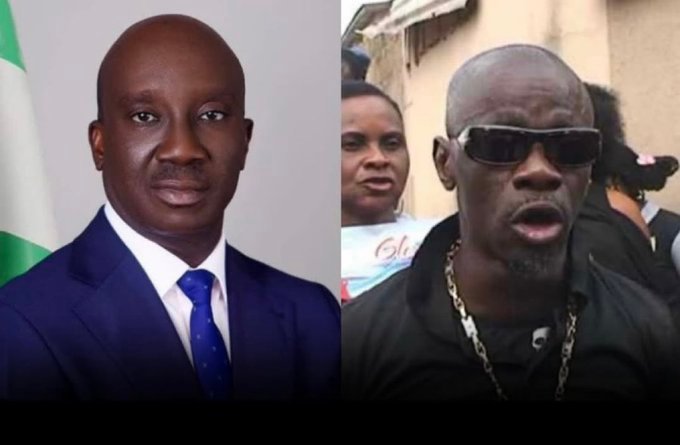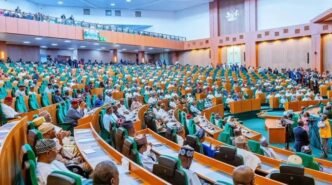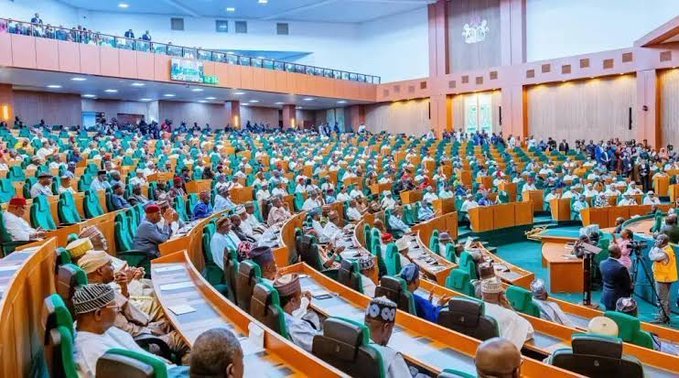Breaking News: Edo Governor Approves ₦914m Compensation for APC Youth Leader Kabaka Over Demolished Hotel
Governor Monday Okpebholo of Edo State has approved the payment of ₦914 million as compensation to Mr. Tony Adun, popularly known as Kabaka, the All Progressives Congress (APC) State Youth Leader, for the demolition of his hotel by the previous administration. The move has sparked widespread reactions across the political, legal, and social spectrum in Edo State, with analysts describing it as a landmark decision in the state’s property rights and governance discourse.
Background to the Compensation
The compensation traces back to the demolition of the T. Latifa Hotel, a hospitality business owned by Kabaka, which was brought down during the administration of former Governor Godwin Obaseki. At the time, the state government cited issues of illegality and alleged violations of town planning regulations. The demolition triggered heated controversy, as Kabaka, a grassroots politician with a strong youth following, accused the government of political victimization.
Following a protracted legal battle, a court awarded Kabaka damages for the loss of his property. The judgment was widely reported as a test of the independence of the judiciary in cases involving high-profile political figures. With the coming of a new government under Governor Okpebholo, the legal obligation to settle the judgment debt has now been honored through the approval of ₦914 million in compensation.
Governor Okpebholo’s Decision
In a statement issued by the Edo State Government House in Benin City, Governor Okpebholo said his administration is committed to the rule of law and justice, regardless of political affiliations.
“We must send a clear signal that government respects the rule of law and the rights of citizens. Where the court has spoken, our duty is to comply, no matter who is involved,” the governor reportedly stated.
He stressed that the decision was not about politics but about upholding the integrity of governance, adding that compensation for loss of property is a legitimate obligation of the state once a judicial pronouncement is made.
Kabaka Reacts to the Payment
Reacting to the development, Kabaka expressed gratitude to the governor for releasing the funds and to the judiciary for delivering justice. He described the demolition of his hotel as “an unforgettable ordeal” that not only caused him financial loss but also emotional distress.
“This is not just about me, but about every ordinary citizen of Edo State. Today’s decision shows that when you fight for your rights, justice can prevail,” Kabaka said.
The APC youth leader, who has often been a controversial figure in Edo politics, also used the opportunity to call for peace and unity across party lines. He noted that while politics may divide people, justice and fairness should unite everyone.
Political Reactions Across Edo State
The approval of ₦914 million compensation has generated mixed reactions across the state. While supporters of the APC see it as vindication for Kabaka and evidence that the previous administration engaged in unfair treatment of political opponents, some members of the ruling elite are questioning whether such a hefty payout is justifiable in the face of pressing developmental needs.
A chieftain of the Peoples Democratic Party (PDP) in Edo, who requested anonymity, argued that the funds could have been directed to infrastructure, health, or education. “While no one is against the rule of law, the timing and optics of paying such an amount to a politician may not sit well with ordinary citizens,” the source said.
Conversely, APC leaders in the state welcomed the decision, describing it as a triumph of democracy and justice. “Kabaka was wronged, and today the wrong has been corrected. This is the Edo we want to see—where the law works for everyone, not just a select few,” an APC spokesperson stated.
Legal and Civic Implications
Legal experts have pointed out that the case sets a precedent for property rights in Edo State and beyond. According to Barrister Efe Igbinedion, a Benin-based lawyer, the judgment reinforces the principle that government must follow due process in urban planning and property-related actions.
“While the state has the power to enforce planning regulations, it must act within the confines of the law. Arbitrary demolitions without proper legal processes will continue to attract judicial sanctions,” he explained.
Civil society organizations also weighed in, noting that the case highlights the importance of strengthening institutions to prevent abuse of power. A human rights group in Benin commended Governor Okpebholo for demonstrating respect for judicial authority.
Public Reactions: Between Justice and Outrage
On the streets of Benin and across Edo’s digital platforms, reactions have been divided. Many residents expressed frustration that nearly a billion naira of taxpayers’ money is being spent on compensating a politician, while others insisted that justice must be served regardless of cost.
An artisan in Uselu market described the development as “justice well served,” while a university lecturer in Ekpoma said the payout represented a misplacement of priorities in a state still grappling with unemployment and infrastructural decay.
Broader Political Context
The decision also plays into the broader political landscape of Edo State, which has been marked by intense rivalry between the APC and PDP in recent years. Kabaka, once a close ally of former Governor Adams Oshiomhole, has been a central figure in mobilizing youth support for the APC. His case, therefore, has always carried political undertones beyond the legal dimension.
Governor Okpebholo’s decision could be seen as a strategic move to mend fences with influential grassroots leaders and build political goodwill ahead of upcoming elections. At the same time, it underscores the financial burden that political disputes can place on the state’s coffers.
What This Means for Governance in Edo
The payment of ₦914 million in compensation raises important questions about governance, accountability, and fiscal discipline. Observers warn that unless government agencies adopt transparent and lawful practices in executing demolitions, more cases of hefty compensation may arise in the future.
Economists also caution that judgment debts can undermine state finances if not managed properly. A development analyst, Dr. Joseph Uhunmwangho, noted that the state must balance the enforcement of urban laws with the economic realities of governance.
“The lesson here is that government must act carefully, because every unlawful action has financial implications that the public ultimately bears,” he said.
Conclusion
Governor Monday Okpebholo’s approval of ₦914 million compensation to APC Youth Leader Tony Kabaka marks a significant chapter in Edo State’s political and legal history. While the decision has been praised for upholding the rule of law, it has also stirred debate about governance priorities and the cost of political disputes.
For Kabaka, the payment represents vindication after years of legal and political battles. For Edo State, it stands as a cautionary tale on the financial consequences of governance decisions. Whether viewed as justice served or as a costly political settlement, the development will continue to shape conversations around law, politics, and accountability in the state.












